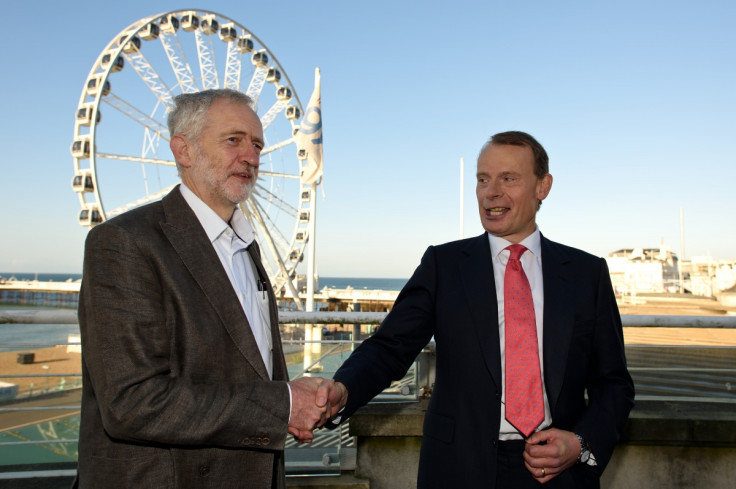Jeremy Corbyn: Labour leader rules out negotiations with 'perverse' terror group Isis

Jeremy Corbyn has ruled out any kind of negotiations with terror group the Islamic State (Isis) and blasted the jihadists as a "perversion" of Islam. Labour's new leader also urged Western governments to freeze the organisation's financial assets and cut off their oil sales in a bid to isolate the terrorist group which has ransacked parts of Syria and Iraq.
"They are not, as far as I know, a force that wants to negotiate with anybody. My view on Isis is that you have to cut off their money, cut off their arms and cut of their oil sales in order to try and isolate them," the anti-war campaigner told the BBC's Andrew Marr show.
My view on Isis is that you have to cut off their money, cut off their arms and cut of their oil sales in order to try and isolate them.
"But you also have to have a political and cultural campaign to try and persuade predominately young people everywhere that there's nothing glamorous or great about what Isis are doing – it's a perversion of Islam."
But Corbyn, who opposed Britain's intervention in Afghanistan, Iraq and Libya, did not make any shifts over his opposition to David Cameron's proposal to bomb Isis in Syria, where the terrorists have based their operations.
The Labour leader said Hillary Benn, the shadow foreign secretary, will outline the party's current position on intervention in the Middle Eastern country when he speaks on 28 September.
'I'm not a Putin supporter'
Corbyn also addressed his position on the IRA during the interview after he was criticised for inviting republican Gerry Adams to Westminster at the high of the troubles. "The violence was wrong on all sides and I said so all along. My whole point was: If we were to bring about a peace process, you weren't going to achieve it by military means," the 66-year-old argued.
The veteran parliamentarian also said he would like to see a "united Ireland" when Marr pressed him on the issue.
While Corbyn stressed that he was not a supporter of Russian President Vladimir Putin, the Labour leader claimed the annexation of the former Ukrainian territory of Crimea by Russian forces in March 2014 was caused by a provocations from Nato and Putin. "I'm not a supporter of Putin, I'm not a supporter of his human rights agenda and I am not a supporter of Russian militarism," Corbyn said.
"There has to be serious negotiations with Russia to try and demilitarise that whole boundary, that whole boundary between Poland and Russia, that boundary between Ukraine and Russia – all down that line – as a way of bringing about a greater sense of peace and security in Europe."
Elsewhere, Corbyn said he would hope to convince his shadow cabinet that the non-renewal of the UK's nuclear deterrent, Trident, was a "good thing".
The interview, in which Corbyn gave a calm and assured performance, came ahead of the leader's keynote speech at Labour's annual conference in Brighton on 29 September.
© Copyright IBTimes 2025. All rights reserved.





















